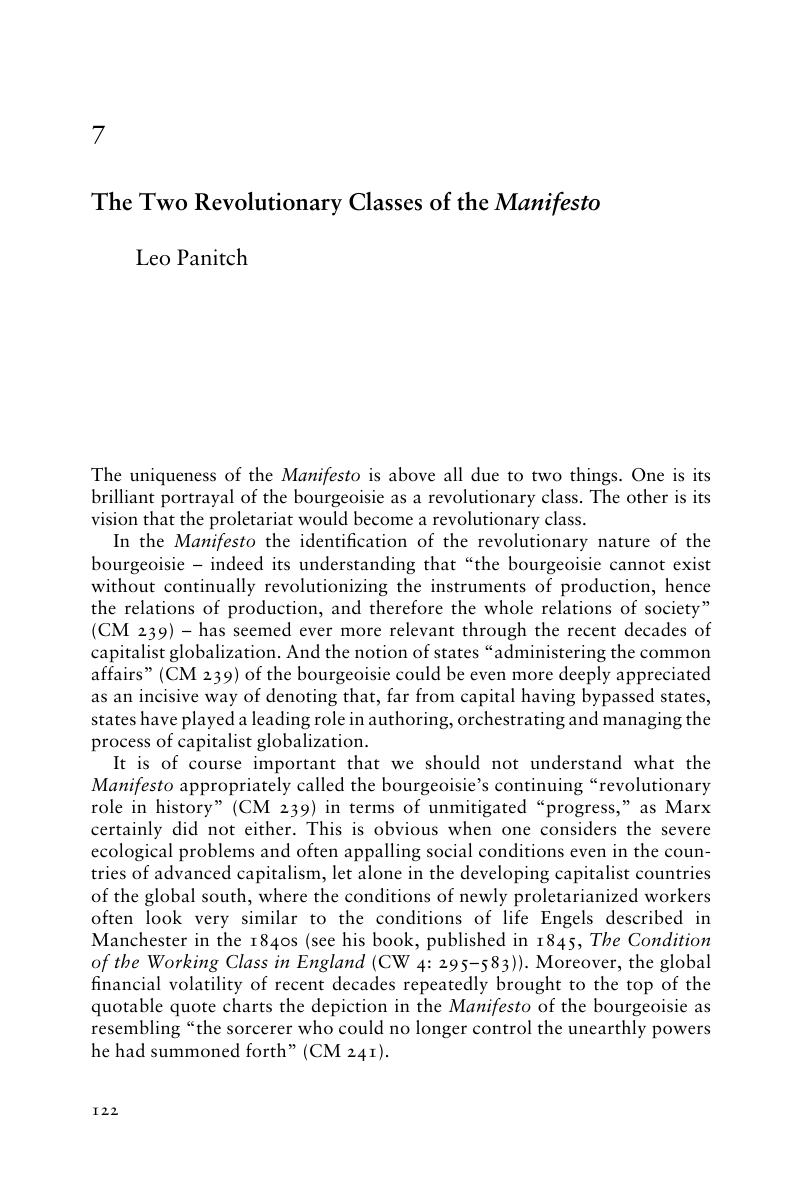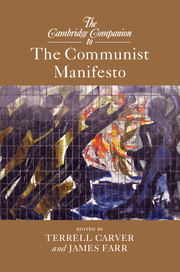Book contents
- The Cambridge Companion toThe Communist Manifesto
- Cambridge Companions to Philosophy
- The Cambridge Companion toThe Communist Manifesto
- Copyright page
- Contents
- Figures
- Notes on the Editors and Contributors
- Book part
- Glossary
- Editors’ Introduction
- Part I Political and Biographical Context
- Part II Political Reception
- 5 Marxism and theManifestoafter Engels
- 6 The Permanent Revolution in and around theManifesto
- 7 The Two Revolutionary Classes of theManifesto
- 8 Hunting for Women, Haunted by Gender: The Rhetorical Limits of theManifesto
- Part III Intellectual Legacy
- Part IV The Text in English Translation
- Notes
- Index
- References
7 - The Two Revolutionary Classes of theManifesto
from Part II - Political Reception
Published online by Cambridge University Press: 05 September 2015
- The Cambridge Companion toThe Communist Manifesto
- Cambridge Companions to Philosophy
- The Cambridge Companion toThe Communist Manifesto
- Copyright page
- Contents
- Figures
- Notes on the Editors and Contributors
- Book part
- Glossary
- Editors’ Introduction
- Part I Political and Biographical Context
- Part II Political Reception
- 5 Marxism and theManifestoafter Engels
- 6 The Permanent Revolution in and around theManifesto
- 7 The Two Revolutionary Classes of theManifesto
- 8 Hunting for Women, Haunted by Gender: The Rhetorical Limits of theManifesto
- Part III Intellectual Legacy
- Part IV The Text in English Translation
- Notes
- Index
- References
Summary

- Type
- Chapter
- Information
- The Cambridge Companion to The Communist Manifesto , pp. 122 - 133Publisher: Cambridge University PressPrint publication year: 2015



